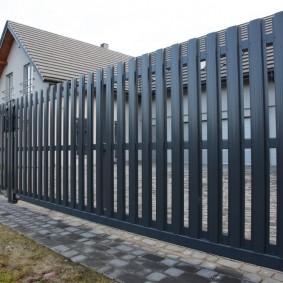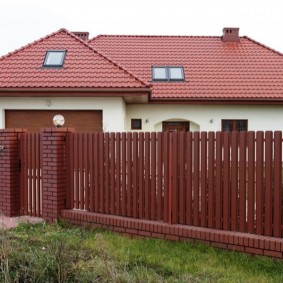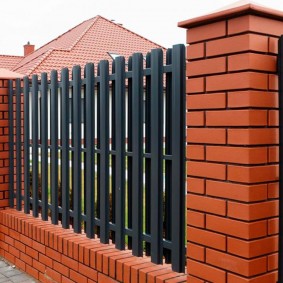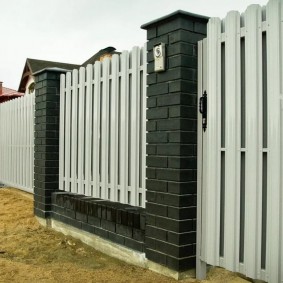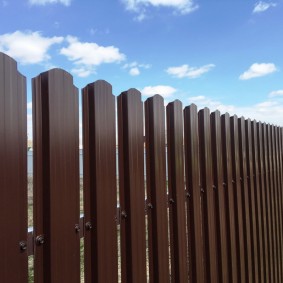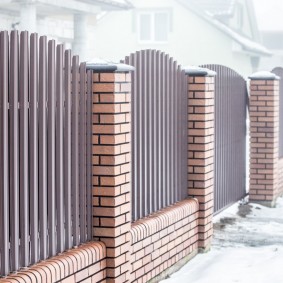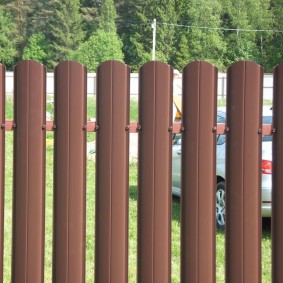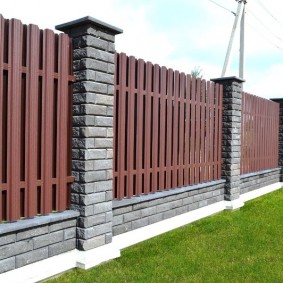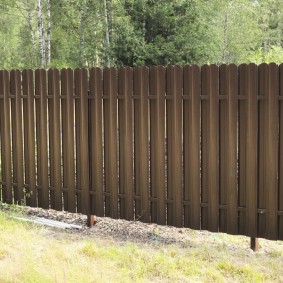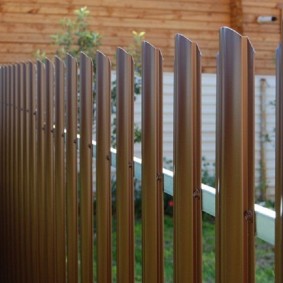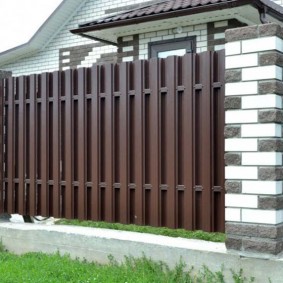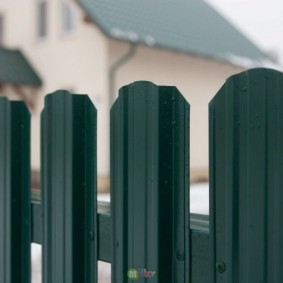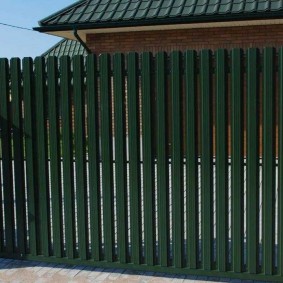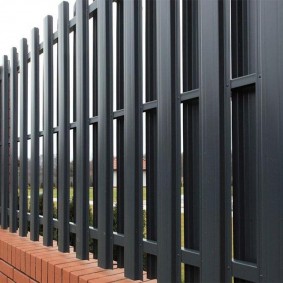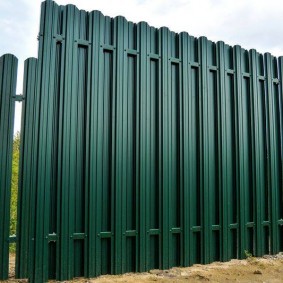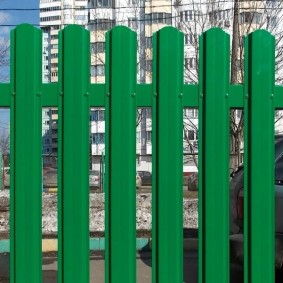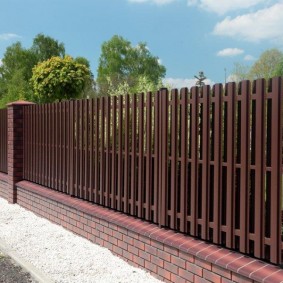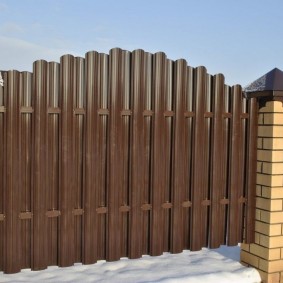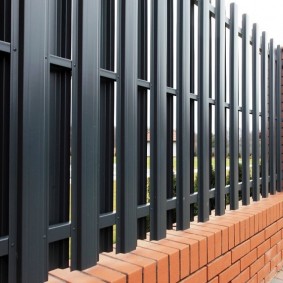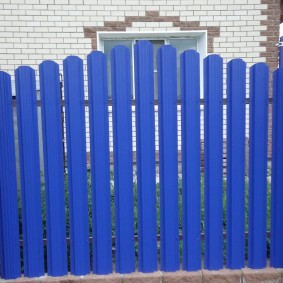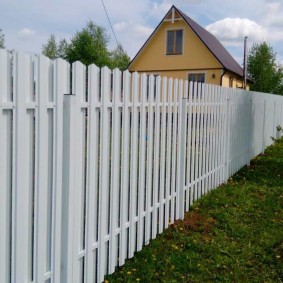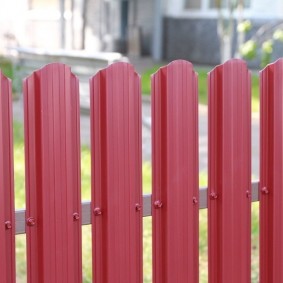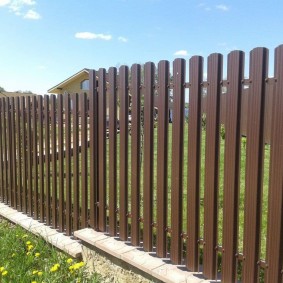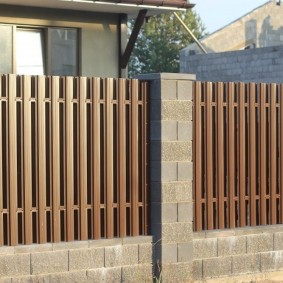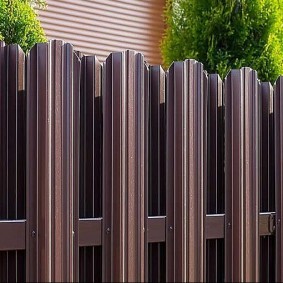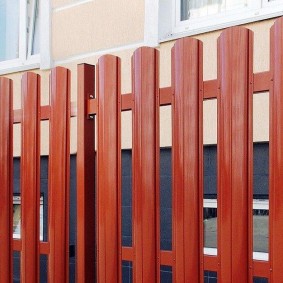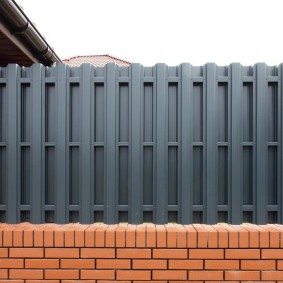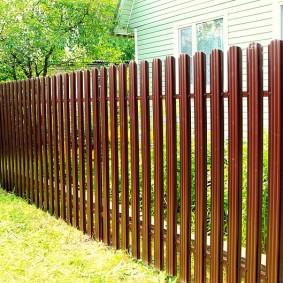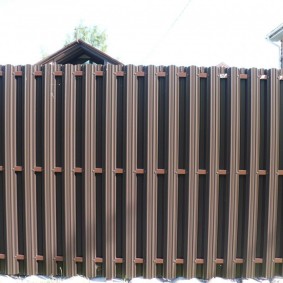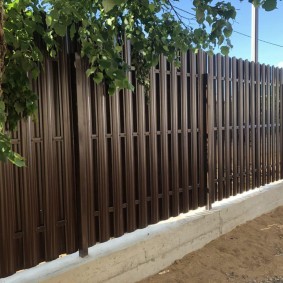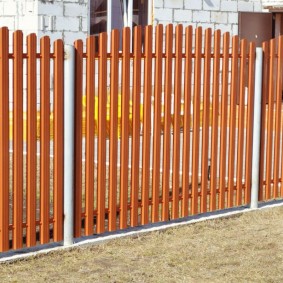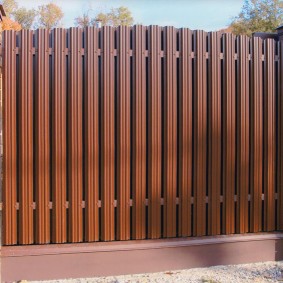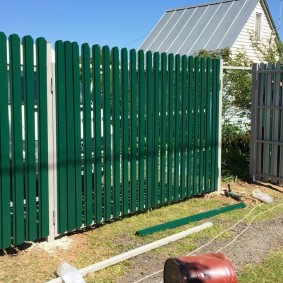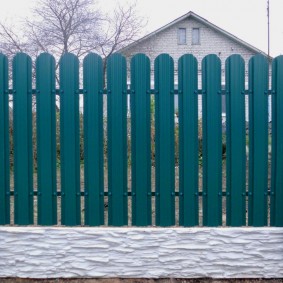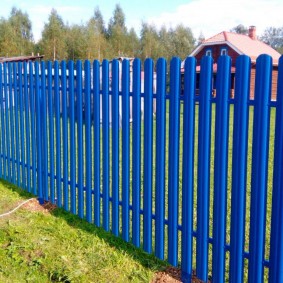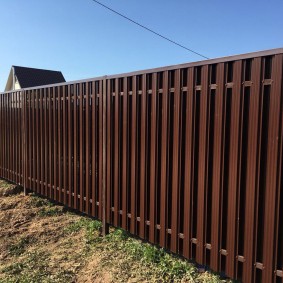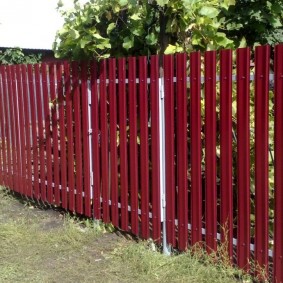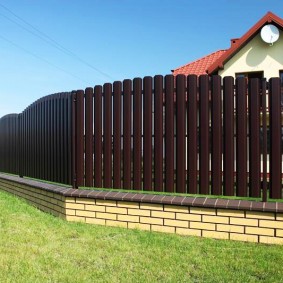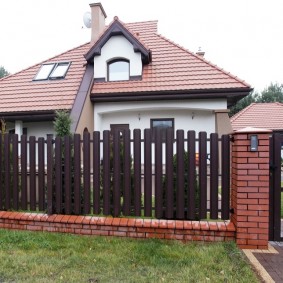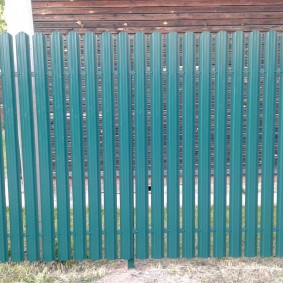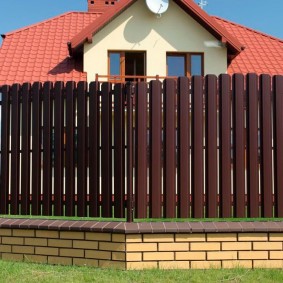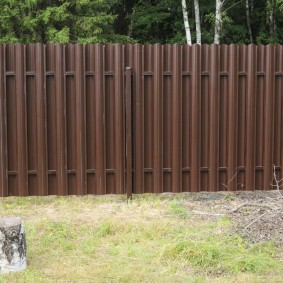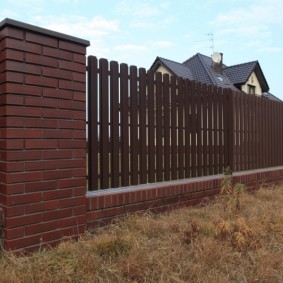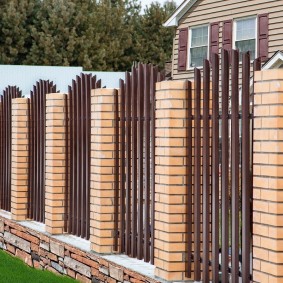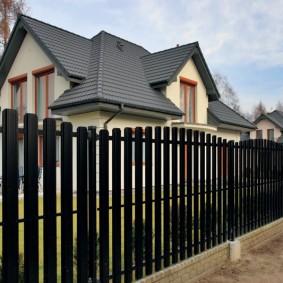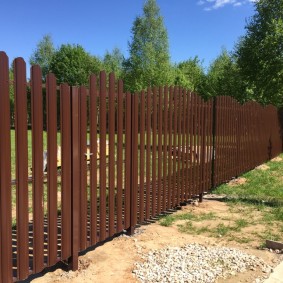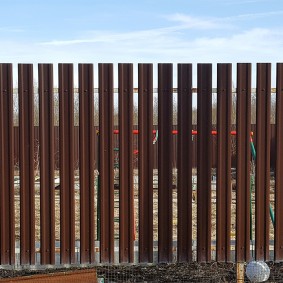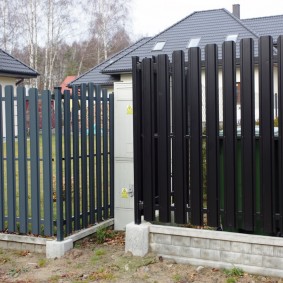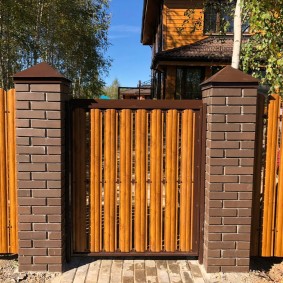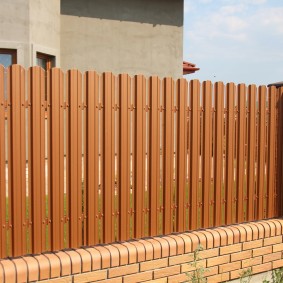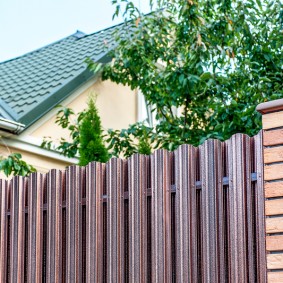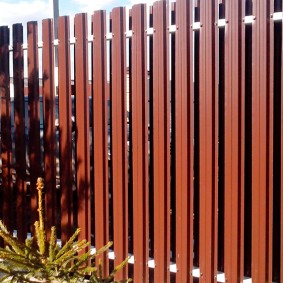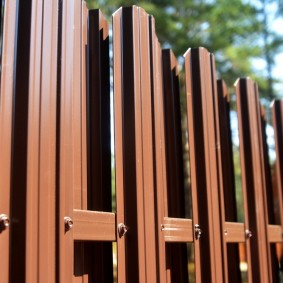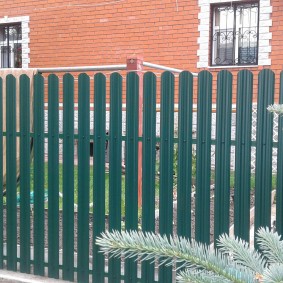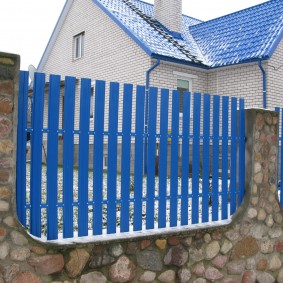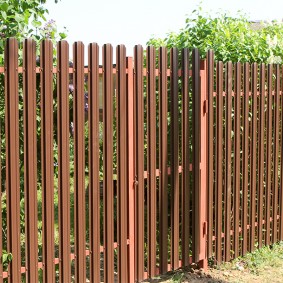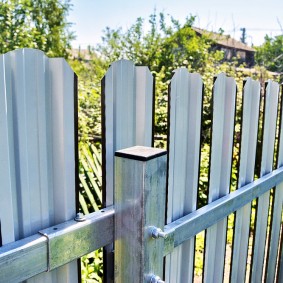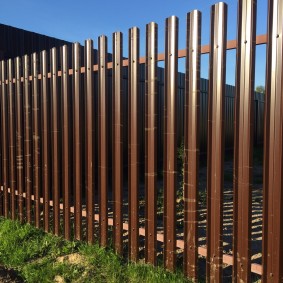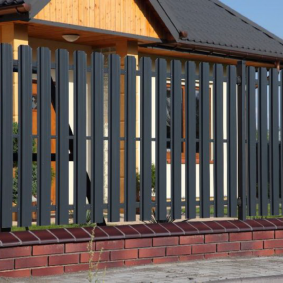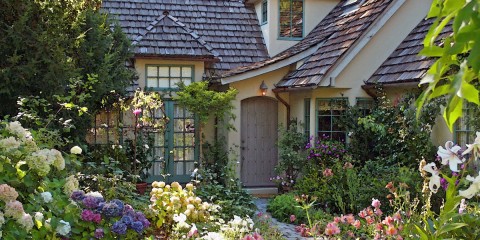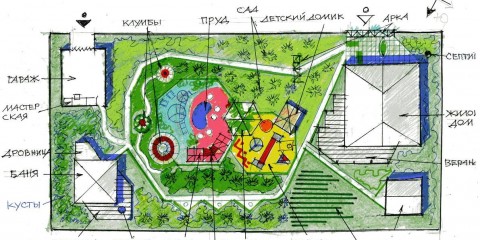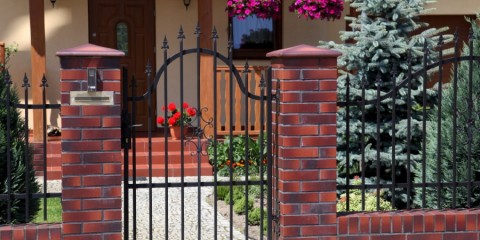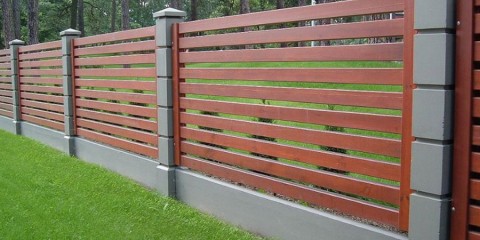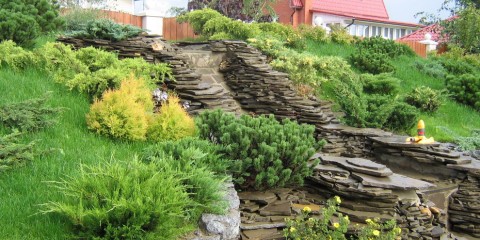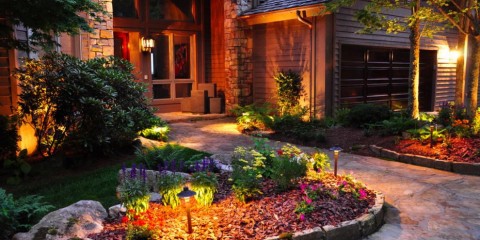 Landscape design
Lighting options for a country house and a summer cottage
Landscape design
Lighting options for a country house and a summer cottage
It seems that in the production of barrage facilities it is already impossible to come up with anything new. Therefore, many owners of private houses and summer cottages prefer to install wooden picket fences or Rabitsa netting as a fence. But designers and craftsmen, professionals suggest constructing structures from euro-piling.
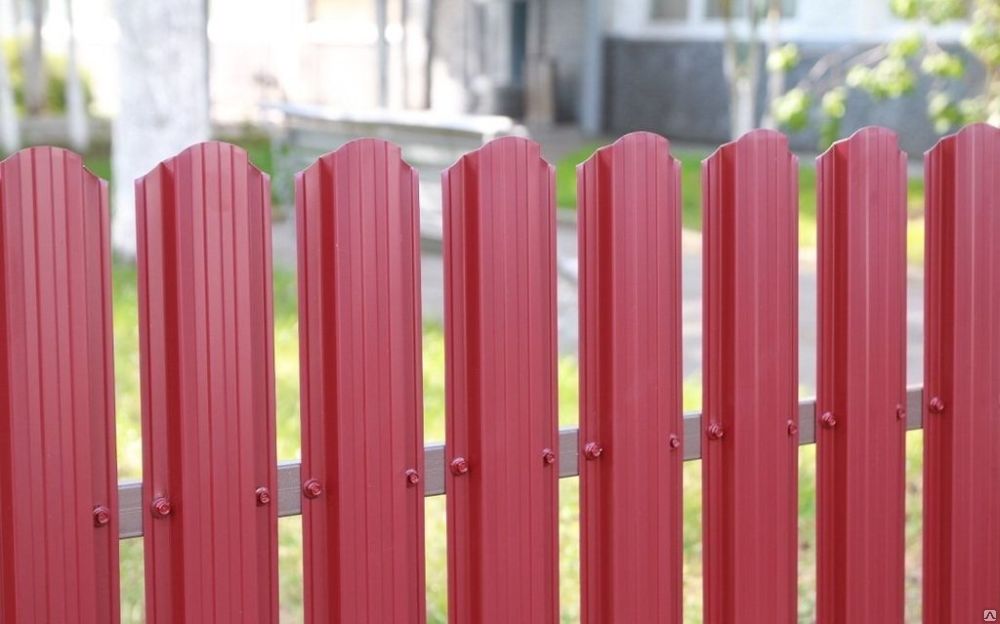
A fence is an important component of any section of a house or cottage.
What is a picket fence and how is it used
Content
Fence is a rack assembled in one section, having equal width, but can vary in height. The latter circumstance depends on the modification and design features. Once such constructions were made exclusively with their own hands, and the only material for this was wood.
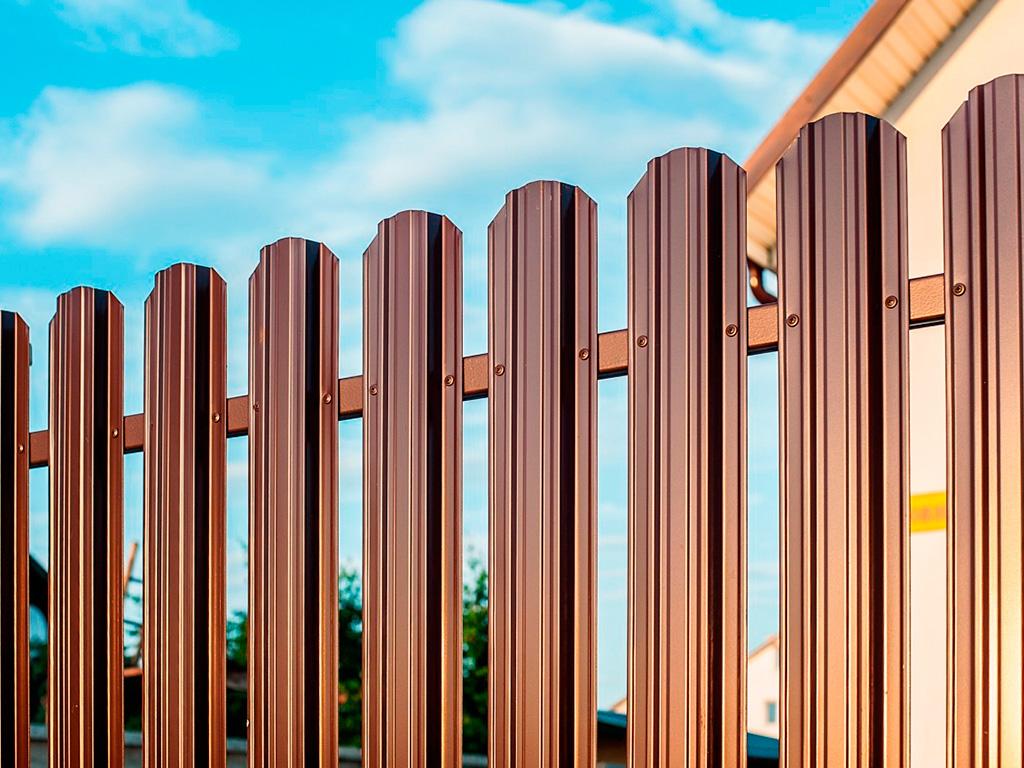
It is important that the fence has an acceptable appearance.
Today it is customary to call almost any fence a euro-fence. Modern fencing is a beautiful metal structure with either a polymer or a decorative coating (wood, stone, marble, etc.). And the prefix “euro” is an exclusively marketing move. The euro-fence fence as in the photo will help to visually determine the difference.
Fence evolution: wooden, plastic, metal
Initially, a picket fence was distributed in the USA as a symbol of a calm and prosperous life of the middle class. Subsequently, it gradually gained distribution in Canada, Australia, Belarus and Russia. Initially, the only applicable material was painted wood. It is environmentally friendly, easy to manufacture and install. But a wooden fence requires constant annual maintenance: antiseptic treatment, painting, replacing damaged battens.
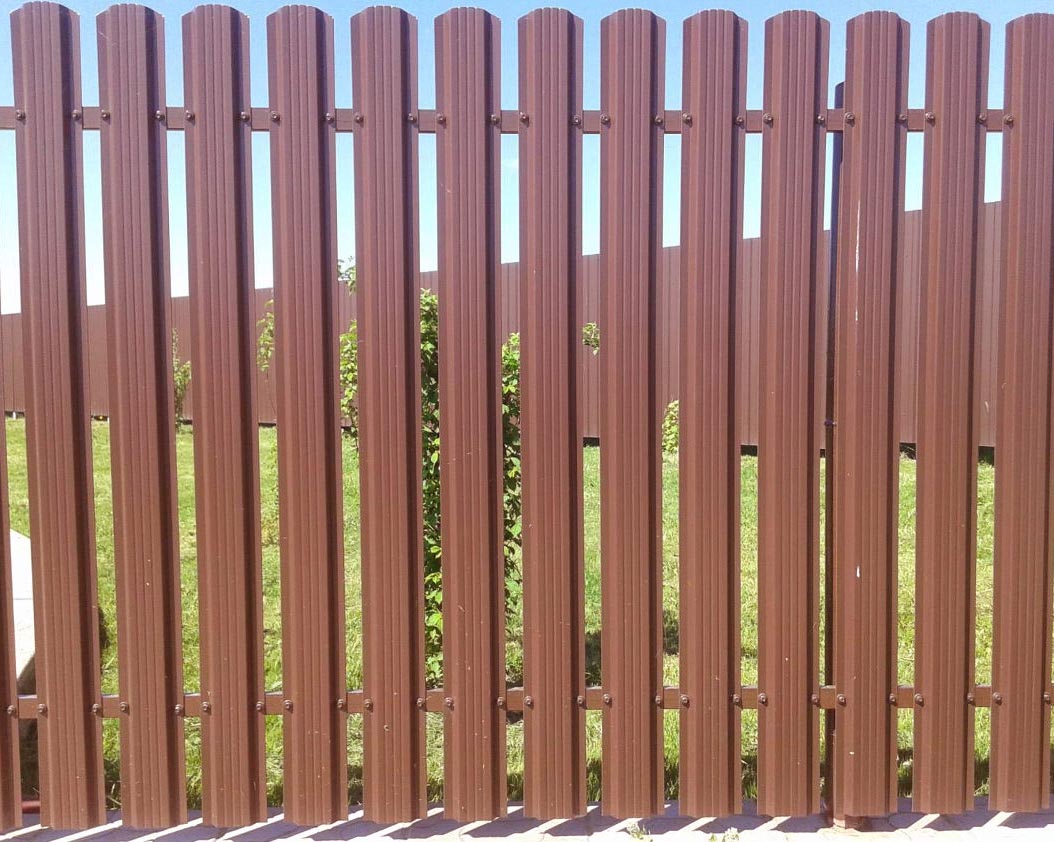
The modern market offers a lot of options that differ in form, quality and appearance.
The advantage of plastic fencing in:
- easy care;
- resistance to temperature extremes and ultraviolet;
- the ability to get a fence of any color and shade.
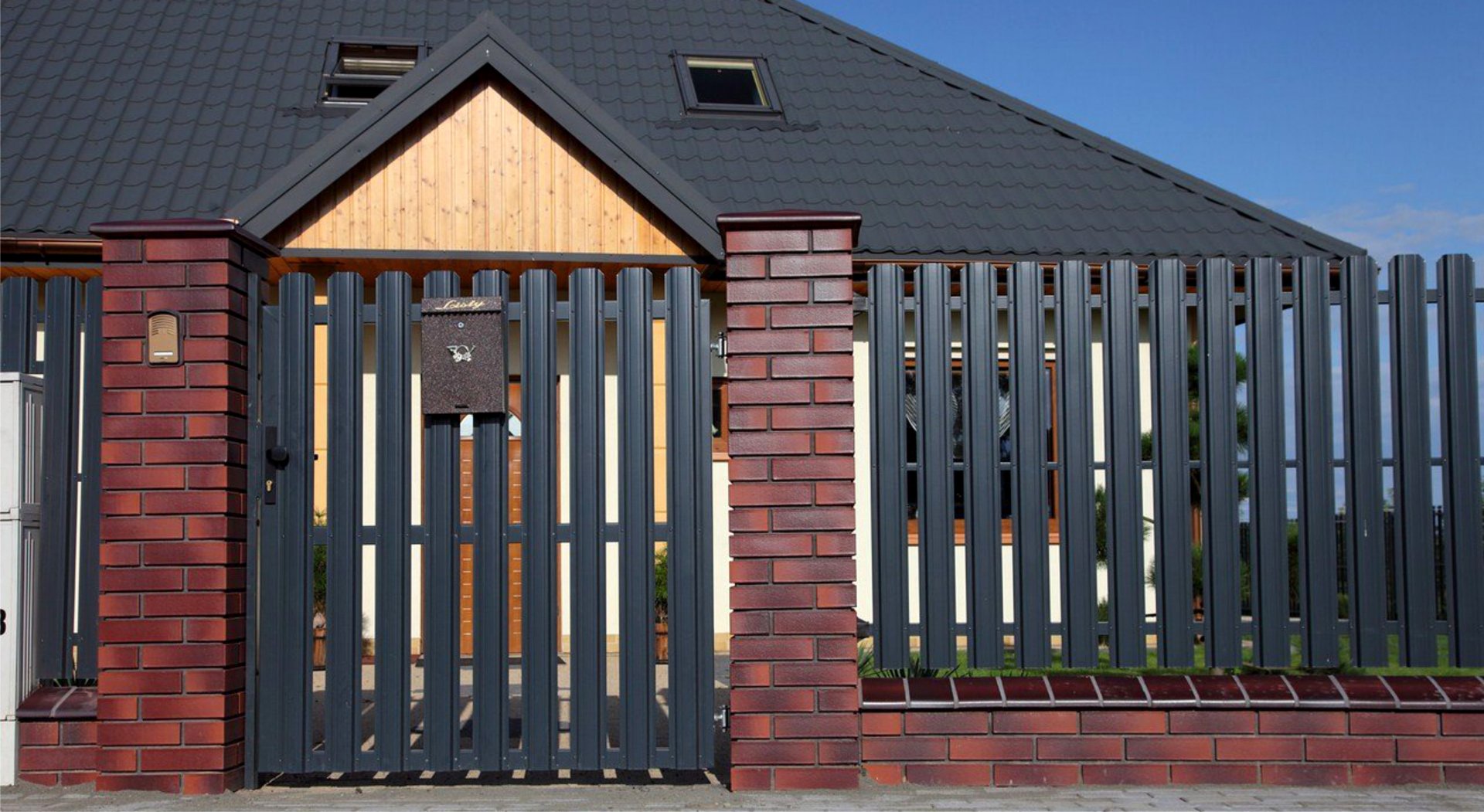
At the moment, a fence made of metal euro-fence is gaining great popularity.
But all this overlaps the fragility of the structure - such a picket fence cannot adequately preserve the property of a country house. It is rather a decorative element.
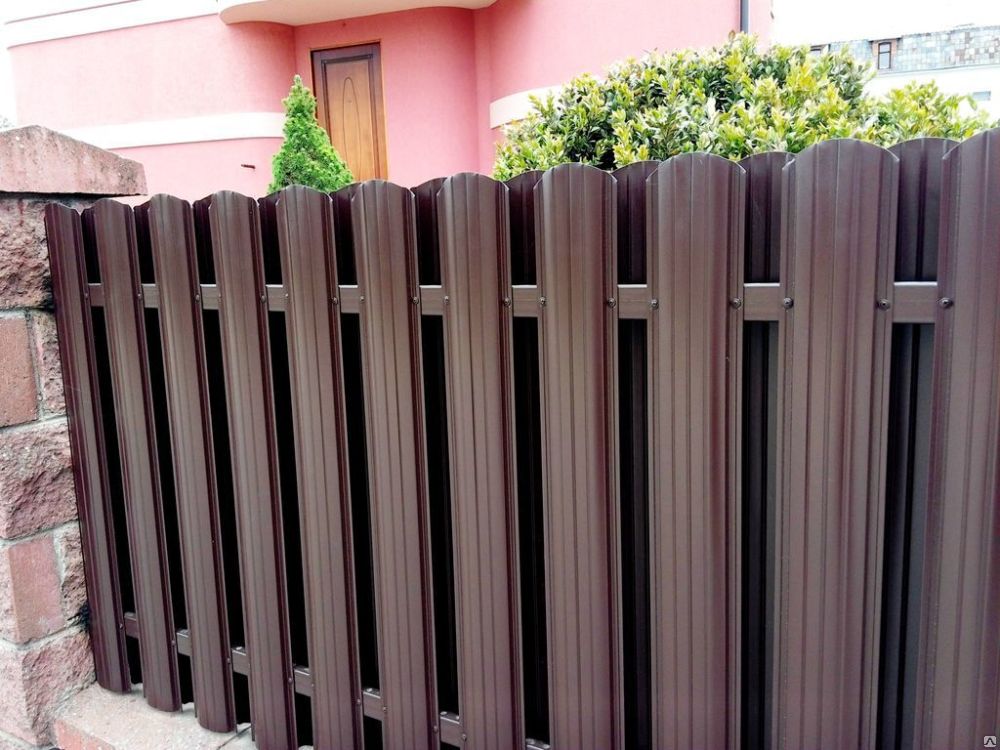
Europacking can now be found in almost every new building.
Today, the most popular material for a barrage is metal. In the manufacture of sections of such a fence between the plates establish uniform gaps. Moreover, in front of the site they are doing more so that part of the beautifully designed area is visible.
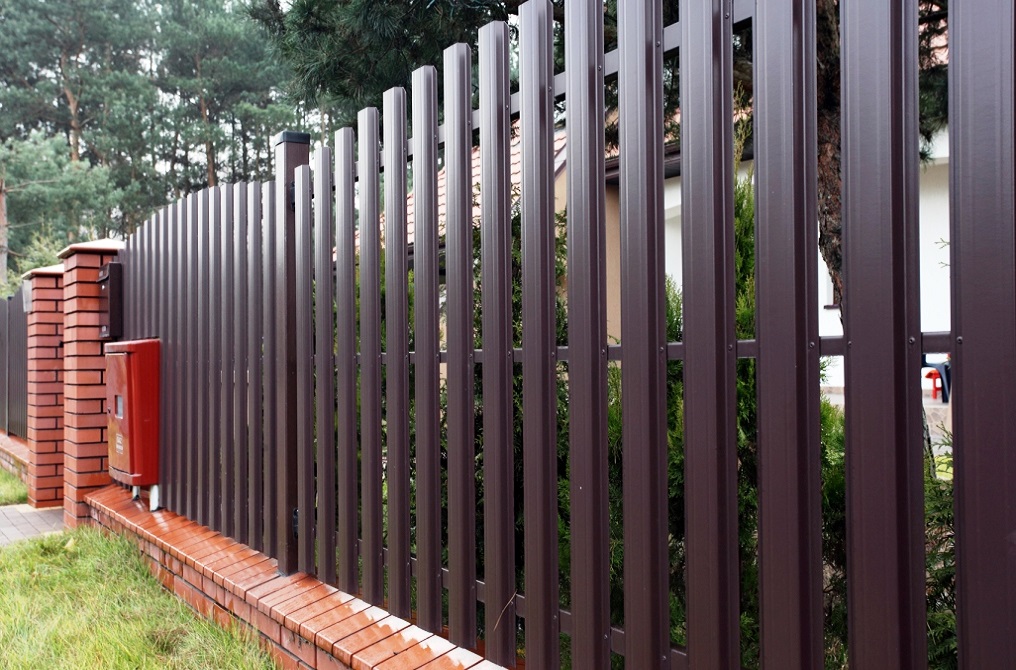
In its structure, it is very similar to corrugated board.
Metal fence has undeniable advantages over others, namely:
- Easy to install, you may need help from a partner, but there is no need for special equipment.
- No maintenance requirements.
- Durability, with correctly observed coating technology, the service life of about 50 years.
- It does not rot, does not corrode, is not subject to temperature changes, does not fade.
- The ability to individually choose the right color.
- Excellent compatibility with other materials, as a result, unique designer barrage structures are created.
- Low price corresponding to quality.
The disadvantages are much smaller, and they are not critical (completely removable):
- Despite the uncomplicated installation, there will be plenty of time to install a fence from a euro-frame.
- Maximum accuracy of measurements and careful observance of the verified parameters are important. Otherwise, distortions cannot be avoided.
- A large number of fasteners will be required.
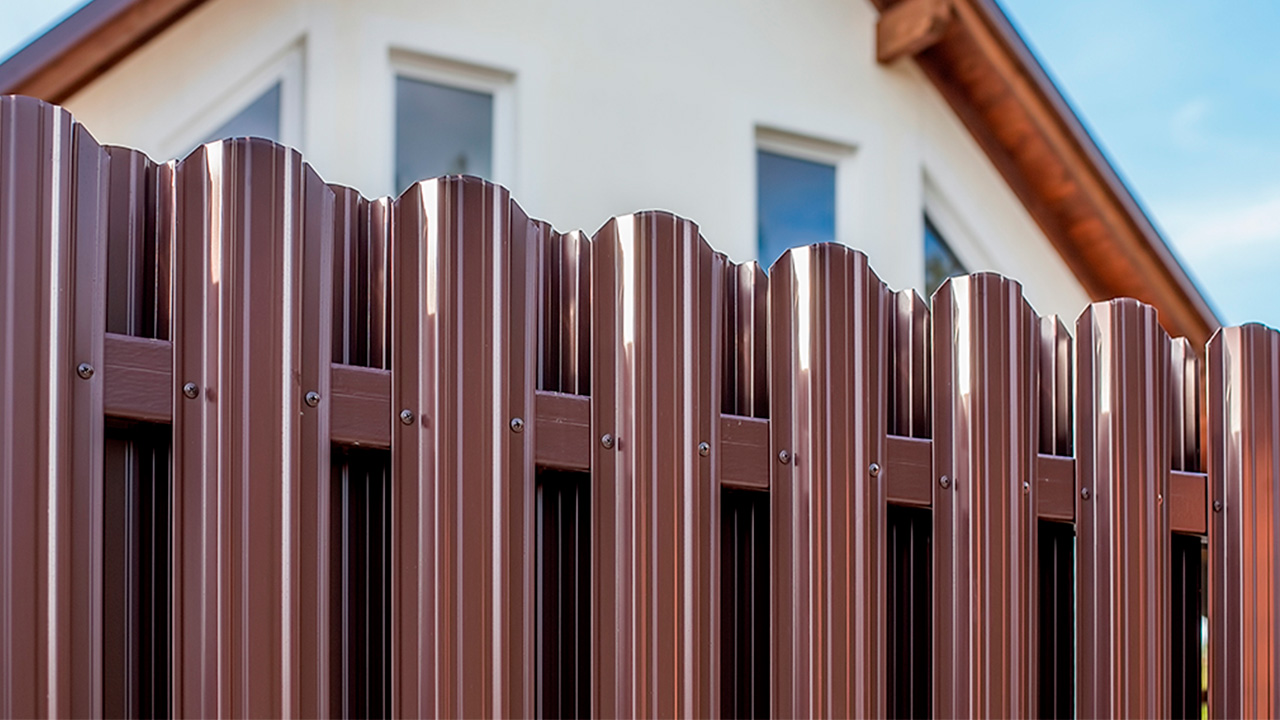
Thanks to the opening between the sections, the air can freely ventilate the entire yard, which is useful both for trees and flowers, and for the owner himself.
Important: when choosing a metal fence, you must first decide on the types of racks (about 4 varieties), then with the design (from 10 traditional options).
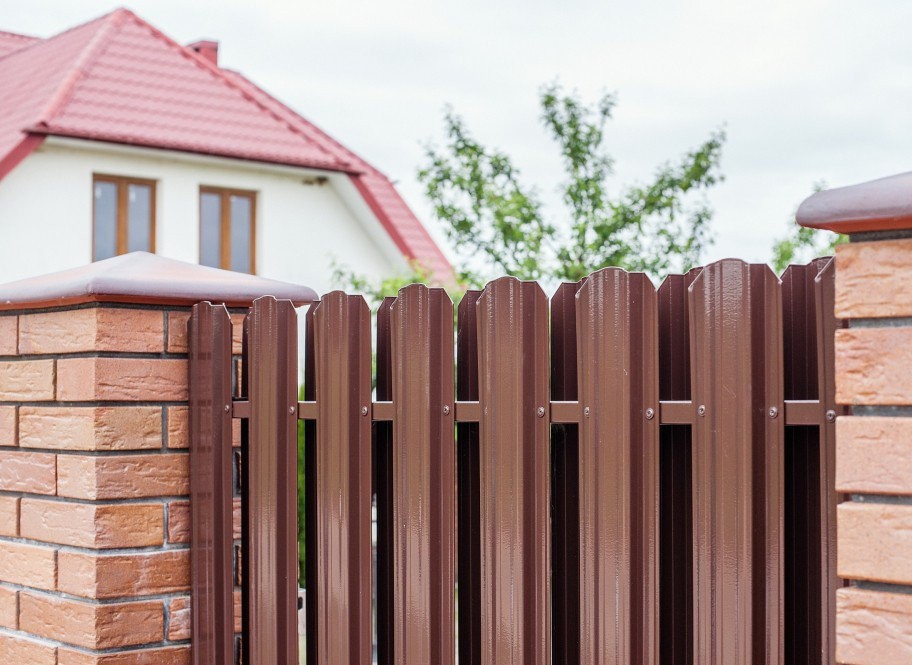
Given the size of the opening, you can use about half the number of blanks.
The main types of installation of fences
The traditional way of installing the picket fence is vertical, but for lovers of unconventional solutions, a horizontal or checkerboard arrangement is possible. It doesn’t matter what material is chosen, the main emphasis during installation is on the type of fasteners.
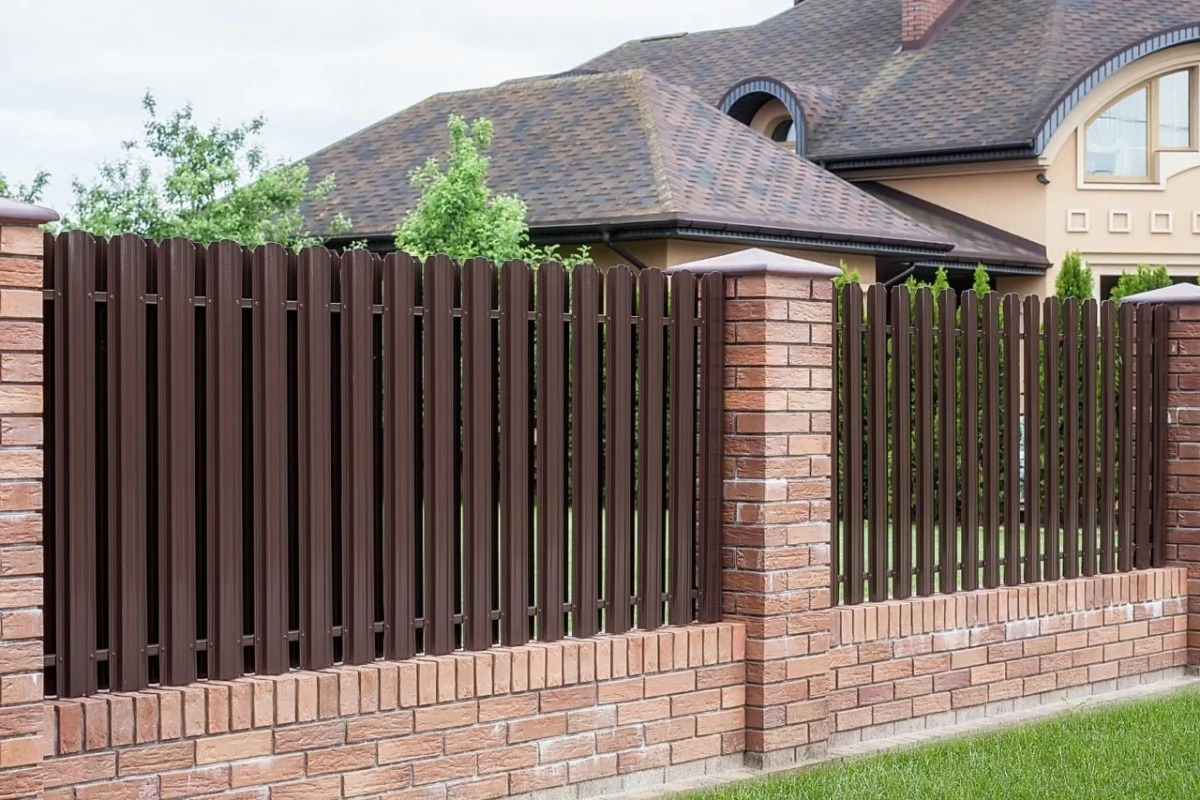
With separate sections, it is easy to adjust the length of each span.
There are three types of picket fixation:
- Vertical - the most common and easy option. It does not require special. knowledge, tools. Selected slats are fastened to the transverse logs with screws or rivets. The size of the rails is 1.25 or 1.5 meters. Mount through the lumen.
- Horizontal - is much less common, with such fastening of the rails, accurate observance of the instructions is necessary. The installation of poles will require additional costs, there should be more of them than when installing a vertical fence, otherwise sagging rails cannot be avoided.
- Chess (double row) - ideal for those who need a blank fence. On the lags placed between the posts from two sides, rails are fixed. Moreover, each by several centimeters overlaps located on the other side. The location is as if staggered. The gap between the rails is set less than its width.
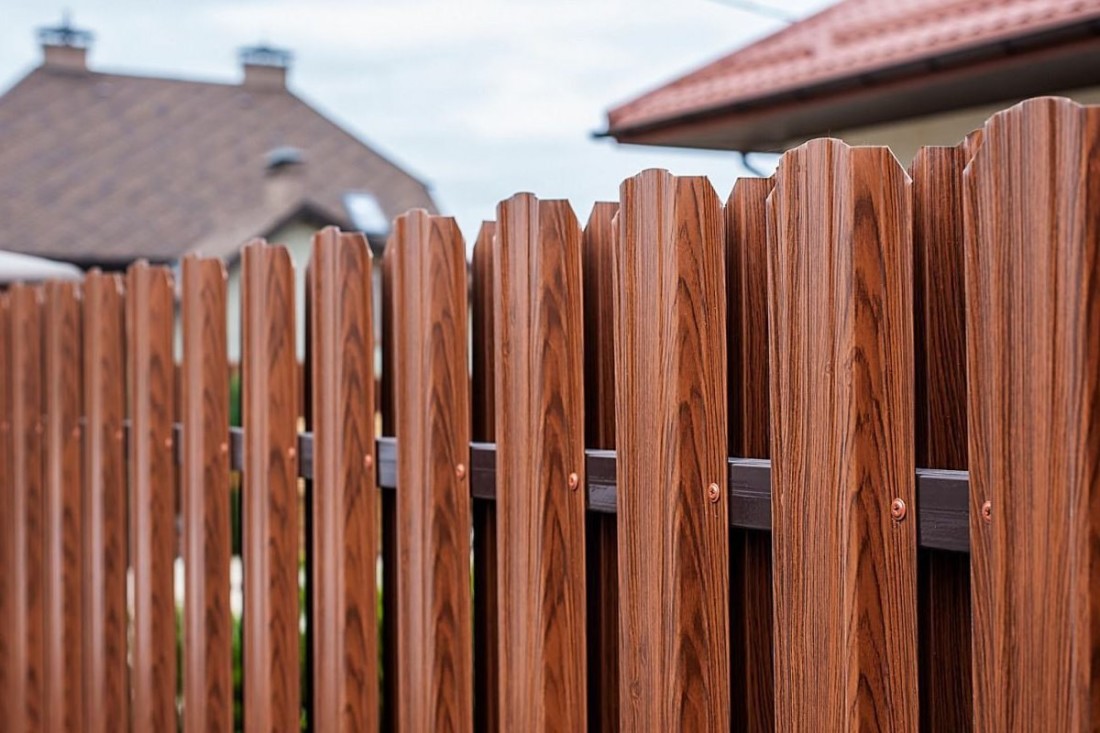
Simplified assembly will facilitate the task and speed up installation time.
Important! The consumption of material with a horizontal arrangement increases by 20%, with a staggered one - by 50%. Accordingly, the cost increases.
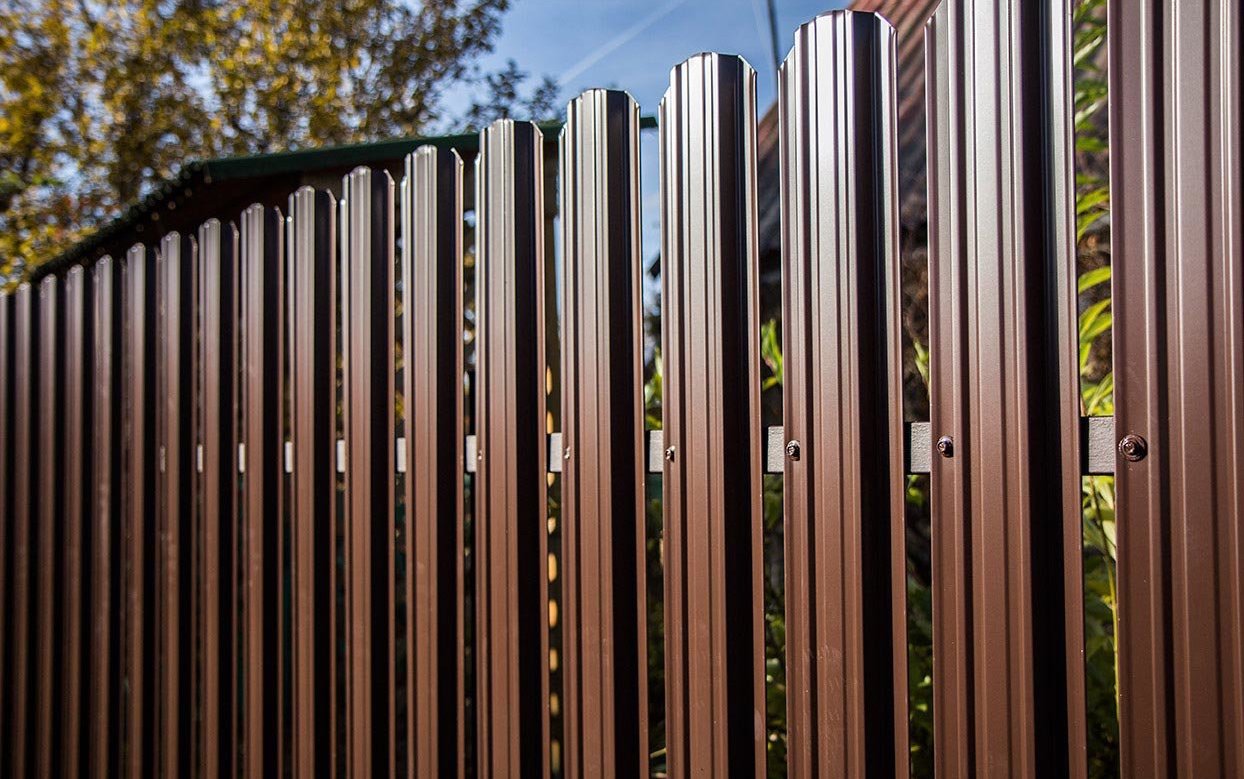
Such a fence looks unusual and attracts the attention of not only neighbors, but also casual passers-by.
Fill Types
There are several options for filling the span between the trims. The final calculation of the cost of the fence will depend on the chosen method.
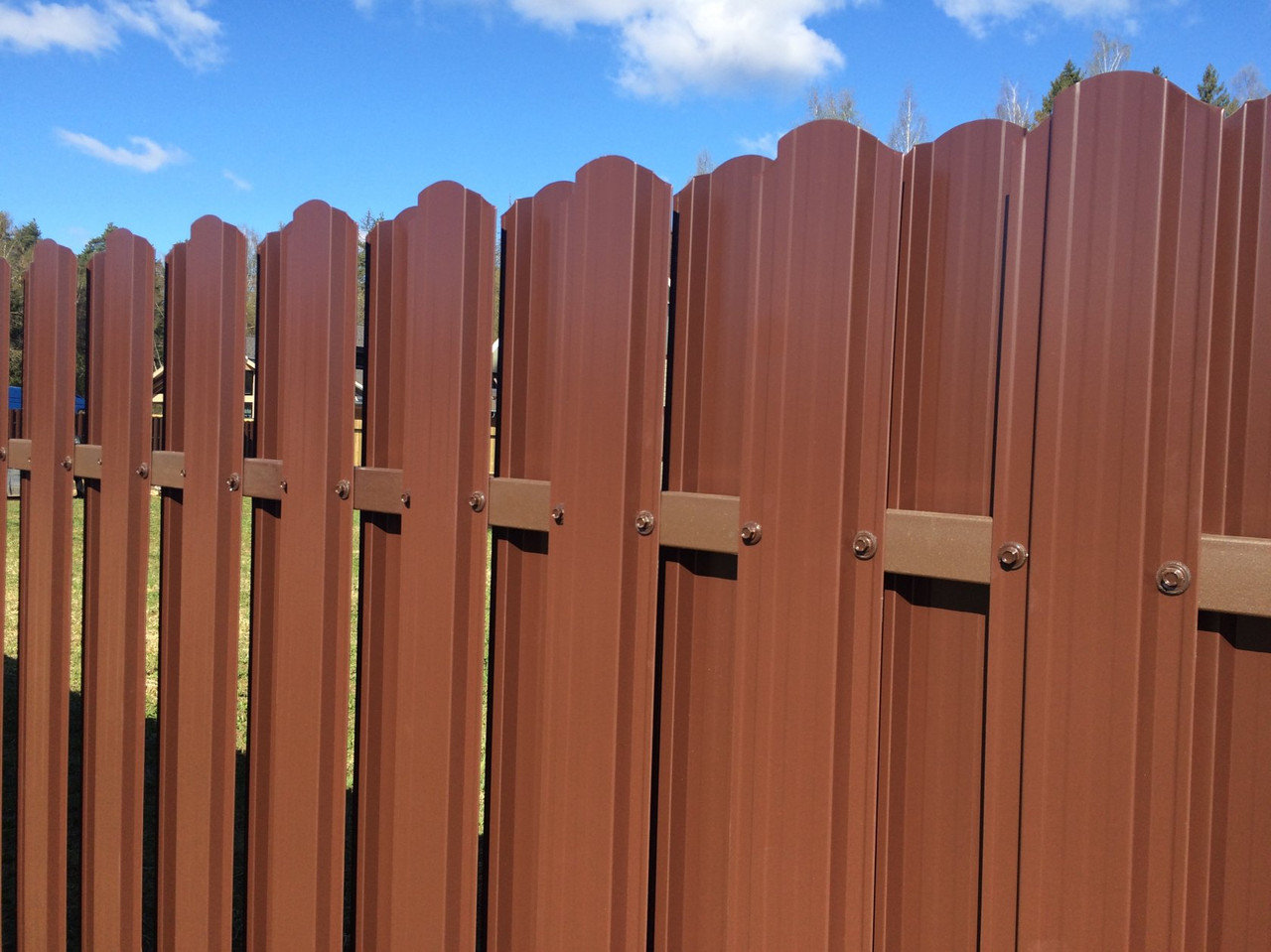
Easy to change individual parts of the fence.
Important! There are no clearly defined state or technical standards for clearances between slats. The choice is entirely up to the owner.
When choosing the distance between the rails and the method of fastening, the following factors affect:
- the desire to have a "translucent" fence - a large blowout and light, but also a view from the neighbors;
- the budget allocated to create a fence - the larger the gap, the cheaper the design.
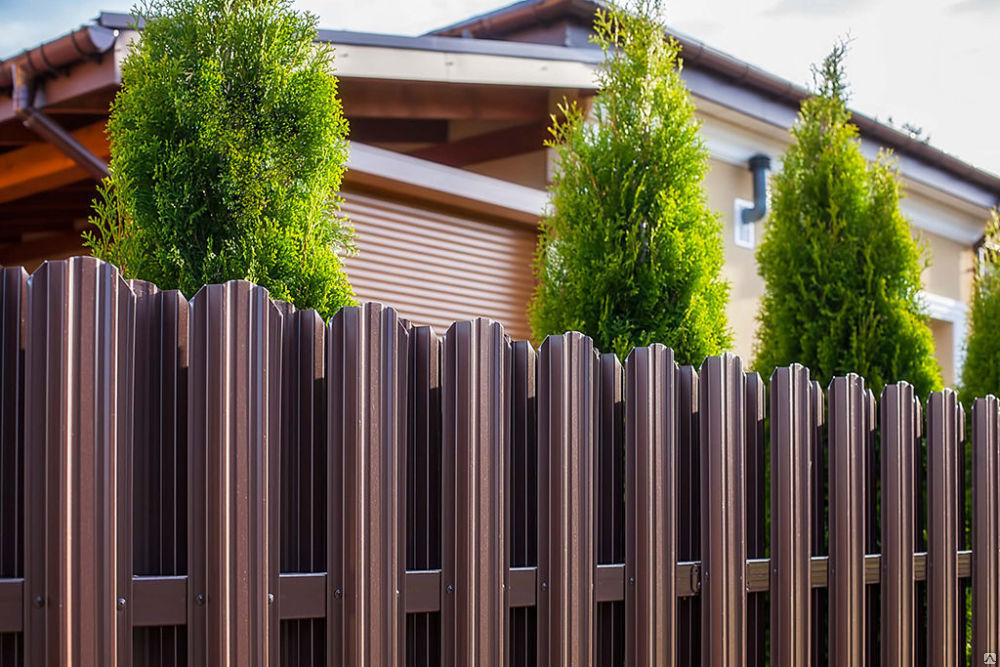
Important! Experts advise calculating the clearance between the rails relative to their width. So the whole structure will have a harmonious look.
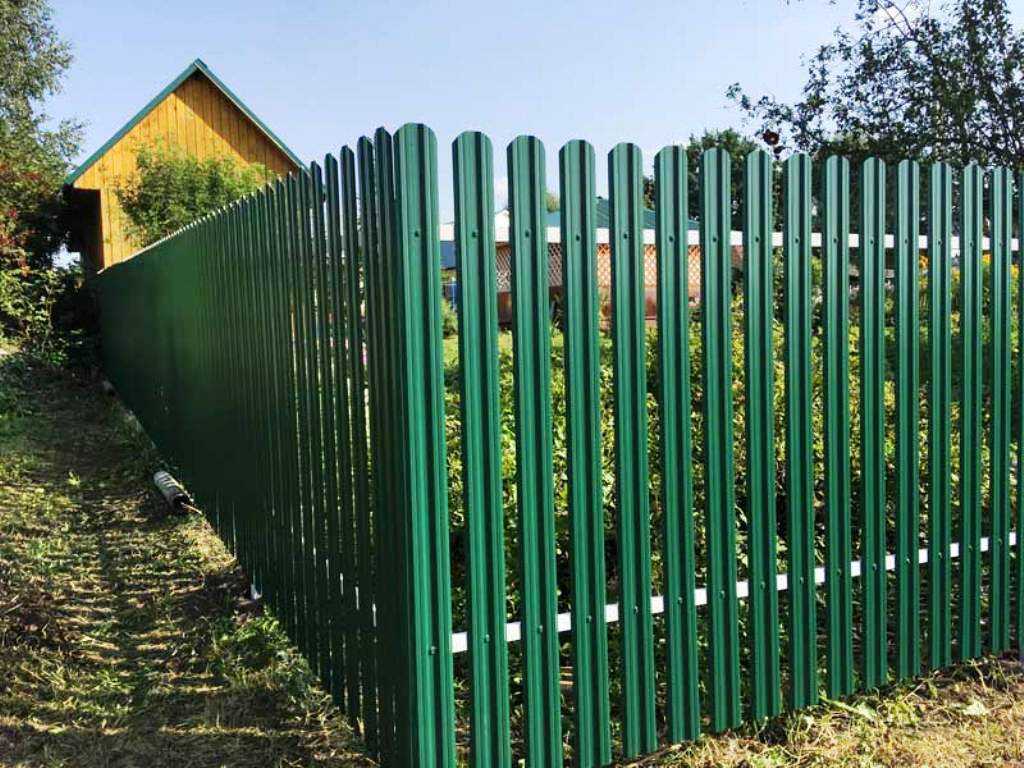
In the event of a malfunction, it is enough to unscrew the roofing screw or tear out the rivet, and then install a new element of the same color and structure.
After calculating the budget and deciding whether the fence will be dull or with gaps, you must select the type of filling:
- Simple, one-sided arrangement of shtaketin.
- Double-sided fence.
- One-sided mounting at an angle.
- Double-sided mounting at an angle.
- Installation as blinds.
- Simple single installation with fastening strips to the wall of the profiled sheet (used for gates).
- Individual scheme of the angle of the slats.
Important: any type of picket is fixed only on the front side. Additionally pay attention to the profile.
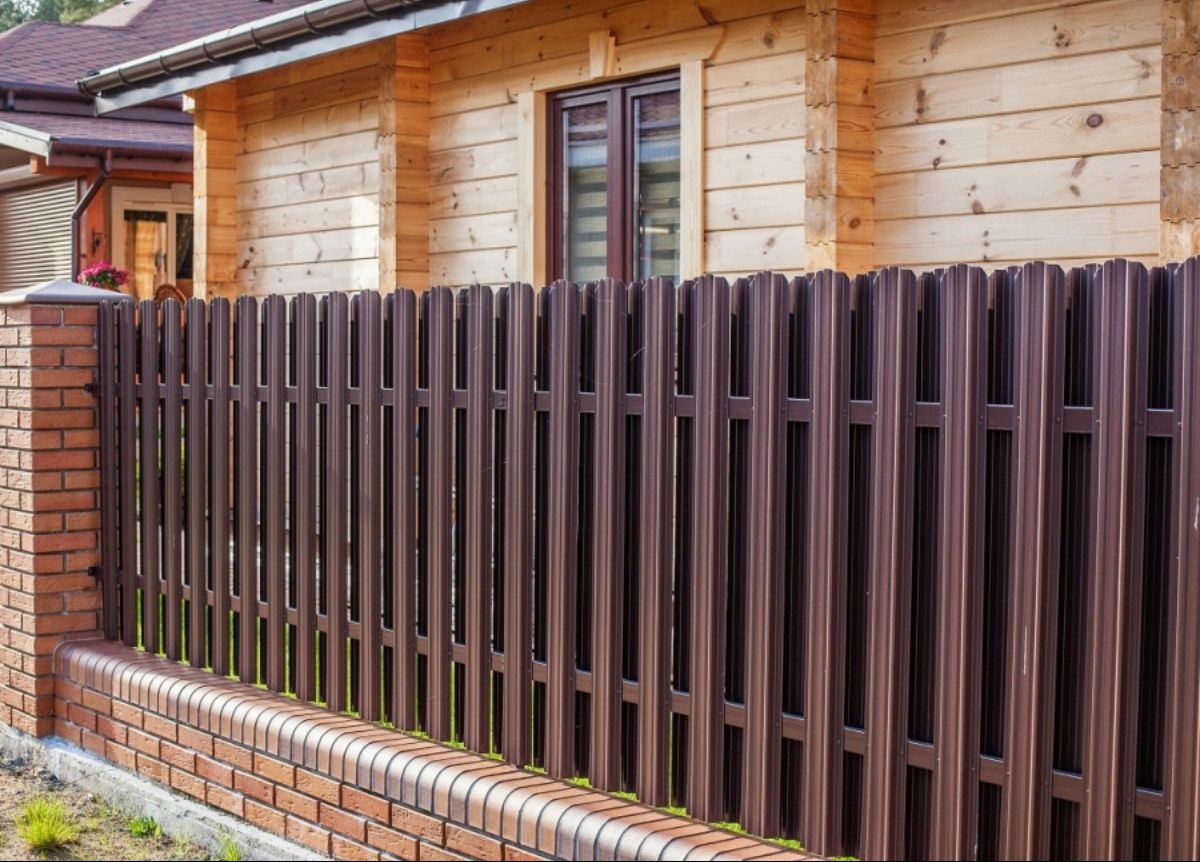
A wide variety of different design decisions of residential houses prompted to expand the range of fences.
What to look for when choosing
Europacking has no equal in a variety of design forms, installation schemes and color schemes. But in order to make the right choice, it is necessary to take into account some features, the final cost of the fence will also depend on them:
- The shape (profile) of the cross section. There is an M-profile, P-profile and C-profile (radius semicircular).
- The edge must necessarily be rolled - this is a sign of the quality and reliability of the manufacturer.
- Color performance usually affects only the front side, a primer is applied from the inside. Planks painted on both sides increase the cost by 8 to 10 times.
- The thickness of the metal. Standard stiffness parameters 0.45 - 0.5 mm. But if it is necessary to increase the strength of the fence, increase the number of ribs.
- The composition of the metal. Class 1 galvanized metal significantly increases strength.
- Metal coating. A proper anti-corrosion coating extends the life of the product.
- Type of coverage. The most unreliable and cheapest is polyester. The highest quality is polymer polyester (powder coating followed by baking).
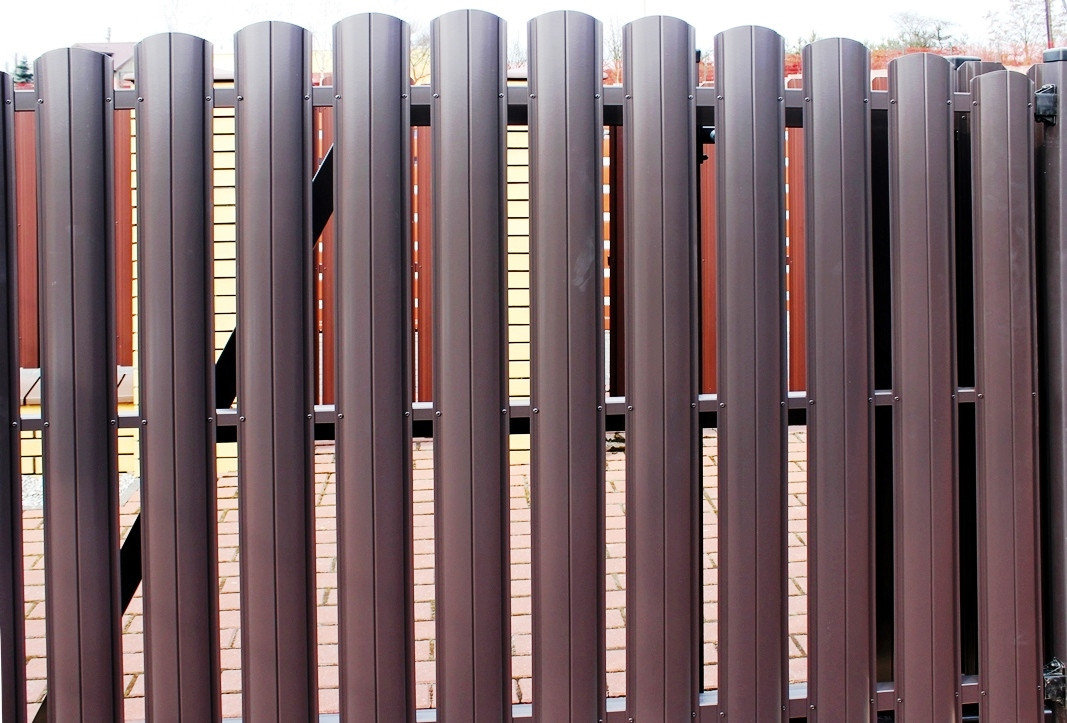
A wide selection is present both in shape and color, and in the materials of fastening and partitions.
Important! In addition to the specified parameters, when buying a picket fence it will not be superfluous to familiarize yourself with the supporting documents and certificates.
Before choosing a fence for a summer residence, it is worth looking at the euro-frame in the photo.
VIDEO: 28 examples of making a picket fence.
